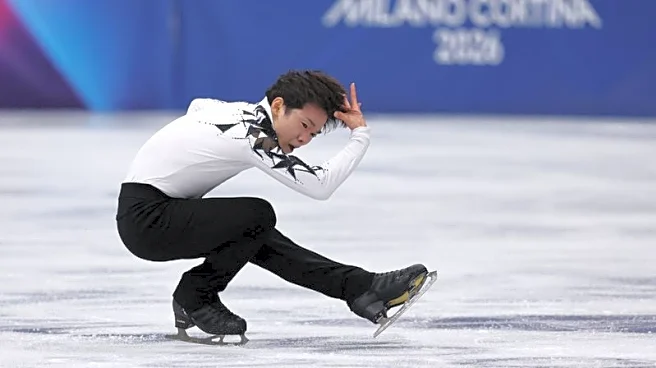What is the story about?
What's Happening?
Hypertrophy training, often associated with muscle growth, is being redefined to emphasize recovery and longevity. According to insights shared by John Welbourn, effective hypertrophy training is not solely about lifting weights but also about surviving the process. Welbourn highlights the importance of recovery, proper nutrition, and sleep in achieving muscle growth. He argues that without these elements, training efforts may be wasted. Welbourn also dispels myths about cardio negatively impacting muscle gains, suggesting that aerobic exercise supports hypertrophy by improving recovery and overall health. The approach encourages smart volume and progressive overload, focusing on quality over quantity in training sessions.
Why It's Important?
The insights provided by Welbourn are significant for athletes and fitness enthusiasts aiming for sustainable muscle growth. By prioritizing recovery and nutrition, individuals can enhance their training outcomes and avoid burnout. This approach challenges traditional views that prioritize intense lifting without considering the body's need for recovery. The emphasis on aerobic exercise as a supportive element for hypertrophy could lead to broader acceptance of balanced training regimens. This shift may influence fitness programs and personal training strategies, promoting a holistic view of physical health and performance.
What's Next?
As these insights gain traction, fitness programs may increasingly incorporate recovery-focused strategies and balanced training regimens. Trainers and athletes might explore new methods to integrate aerobic exercises into hypertrophy routines. The fitness industry could see a rise in products and services aimed at enhancing recovery, such as specialized nutrition plans and recovery-focused equipment. Additionally, discussions around training longevity and sustainable fitness practices may become more prevalent, influencing how fitness goals are set and achieved.
Beyond the Headlines
The emphasis on recovery and longevity in hypertrophy training highlights broader cultural shifts towards sustainable health practices. This approach challenges the 'no pain, no gain' mentality, advocating for a more balanced and mindful approach to fitness. It also raises ethical considerations about the pressure to achieve quick results at the expense of long-term health. As the fitness community embraces these insights, there may be increased dialogue around mental health and the psychological aspects of training, promoting a more comprehensive understanding of well-being.

















